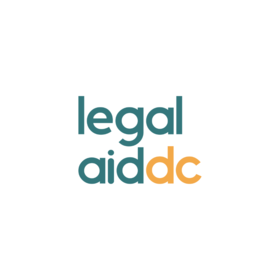Legal Aid of the District of Columbia today issued the following statement after the DC Council Committee on Judiciary & Public Safety voted to restore some of funding for civil legal services, which would enable Legal Aid and other legal services providers to continue to support residents experiencing poverty.
As part of the budget released in March, the Mayor proposed a 60% cut to the Access to Justice program, which helps ensure District residents facing significant legal challenges can get legal services. Those cuts would reduce funding for the program from approximately $31 million in 2023 to $13 million in 2024. Most of Legal Aid’s budget to pay attorneys who provide legal services for residents comes from these funds.
In 2023, the funds from the program help pay for 46 lawyers and professionals – about half of the employees at the organization – who will assist nearly 5,000 clients facing foreclosure, eviction, and debt collection cases or needing help ensuring safety from domestic violence or accessing government benefits, like health care or nutritional assistance.
On Tuesday, the Committee on Judiciary and Public Safety voted to add $3.85 million to the Access to Justice program, and the budget now moves to the full Council for consideration.
“Legal Aid cannot operate at the capacity we need to without full funding for the Access to Justice program,” said Vikram Swaruup, Legal Aid DC’s Executive Director. “Low-income residents – mostly Black and brown – are still very much struggling as pandemic-related protections end and as inflation has surged. Just compared to a year ago, we received double the number of calls from residents seeking help in eviction, debt collection, and food stamp cases. The proposed cut to legal services is unfortunately just one piece of a larger budget that cuts or refuses to fund critical services for poor District residents, like emergency rental assistance and nutritional assistance. Fortunately, various Council Committees just took steps to address these cuts, but much more is needed. We urge the full Council to complete what the Judiciary Committee has started and restore funds for civil legal services and other critical programs for our client community.”
The Judiciary Committee’s report following an April 13 hearing where Legal Aid testified regarding the proposed cuts to the Access to Justice program reinforces the dire impact they would have on legal service providers and District residents they serve. It highlights that that legal assistance by attorneys supported by these funds helped 82% of tenants avoid eviction or regain possession of their housing in 2022. The report also points out that the proposed $18 million cut could cost the District upwards of $90 million by having to provide other services for residents in need, while also causing long-term harm.
This massive disinvestment in legal services is just one piece of a larger budget proposal that cuts or refuses to fund critical services for poor residents. While cutting funds for eviction lawyers, the Mayor’s proposed budget also reduces funding for the Emergency Rental Assistance Program (ERAP) from $43 million to $8 million, compounding the harm to tenants experiencing poverty. This year, the $43 million allocated to ERAP lasted less than six months. At that rate, the $8 million proposed for next year will last only one month. The Mayor’s budget also did not fund the Give SNAP A Raise Amendment Act of 2022, which would add funding to nutritional assistance after the federal government reduced funding. While no Council Committee has proposed funding the SNAP bill, the Housing Committee released a draft proposal adding $6.3 million to ERAP. The Housing Committee will take its final vote on that proposal this Wednesday.




